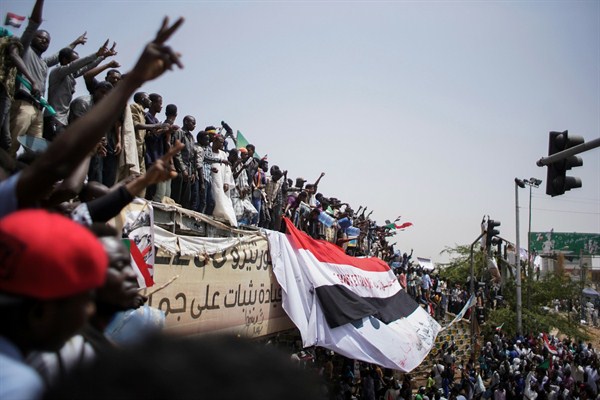Editor’s Note: Every Friday, WPR Senior Editor Robbie Corey-Boulet curates the top news and analysis from and about the African continent.
For a few days this week, the fate of Sudan’s protest movement seemed to hang in the balance. As large crowds continued their sit-in Tuesday morning outside the army headquarters in Khartoum, they were fired upon by paramilitary troops loyal to President Omar al-Bashir, who had been in power for three decades. Yet these troops soon clashed with soldiers who appeared to be sympathetic to the protesters, highlighting how, as the movement to oust Bashir gained unprecedented momentum, at least some members of his security apparatus were reconsidering whether to back him.
This standoff came to a head Thursday morning, when Defense Minister Awad Mohamed Ahmed Ibn Auf went on state television to announce that Bashir’s reign was over and he had been arrested. The president, Ibn Auf said, was being held in a “safe place” and would be replaced by a military council.

